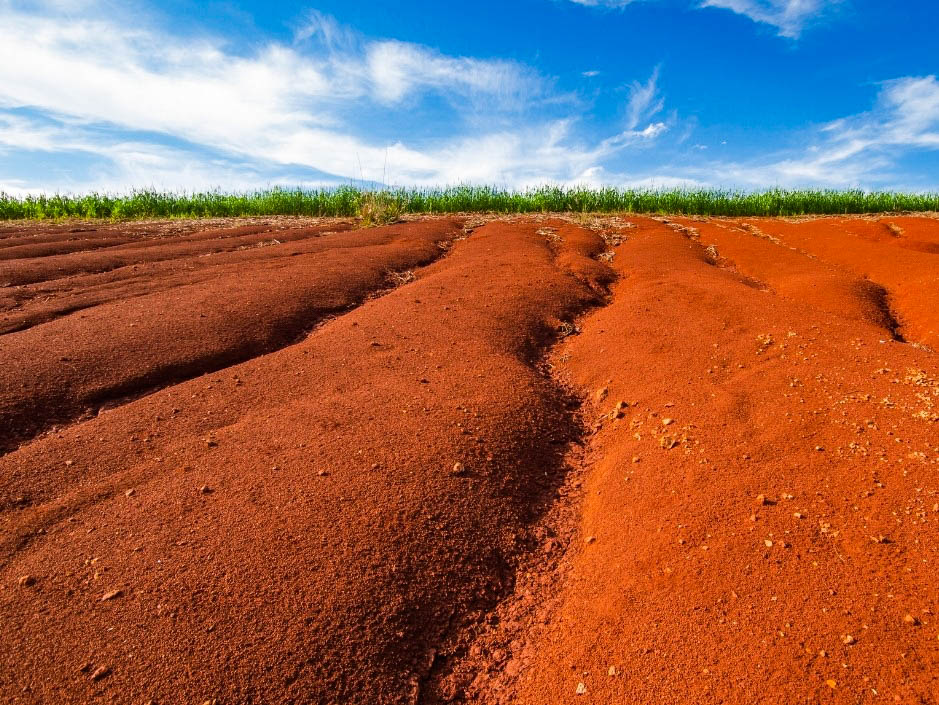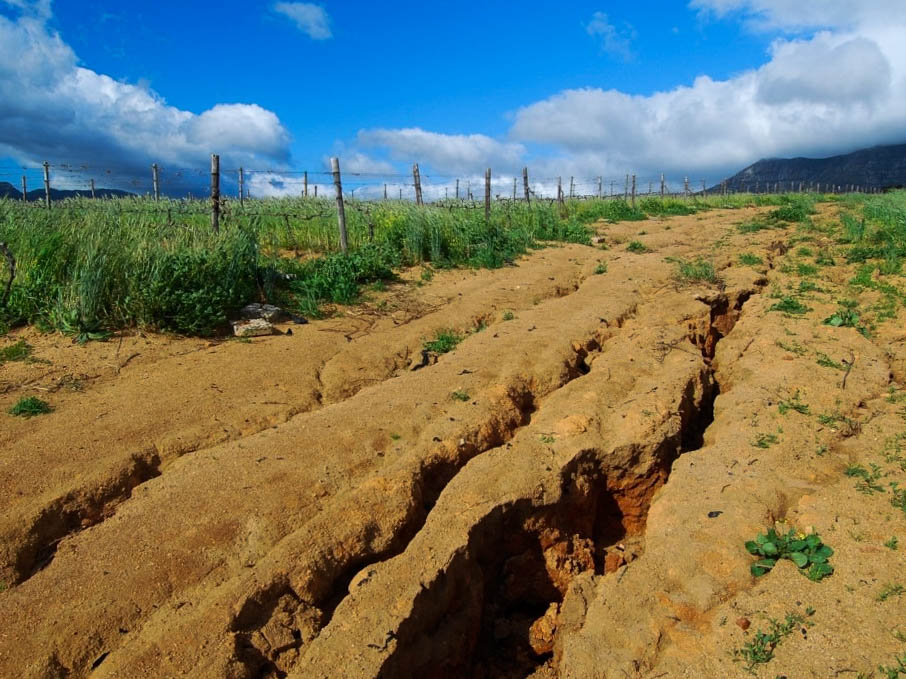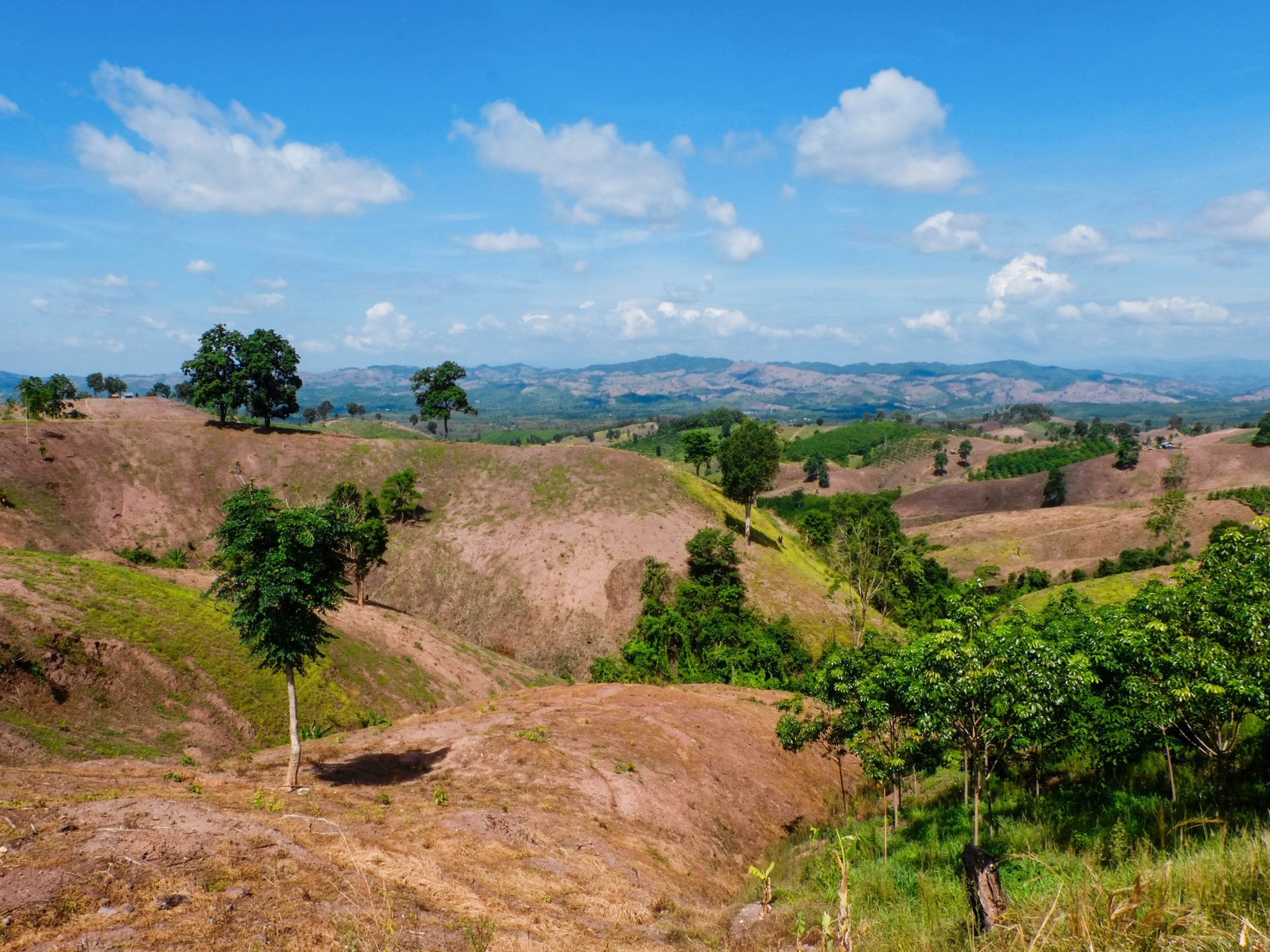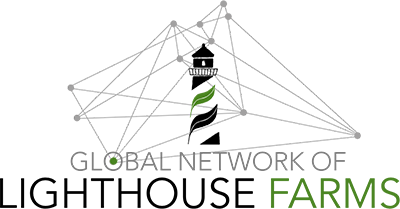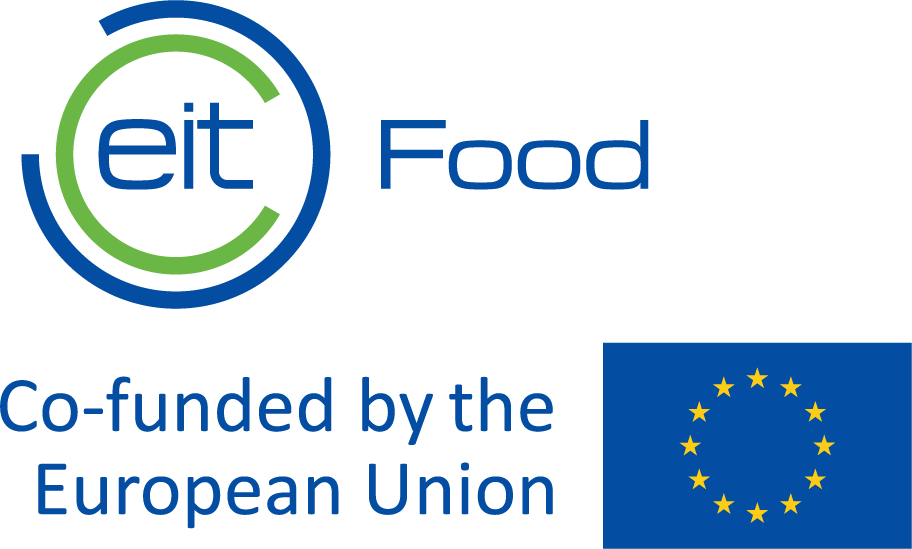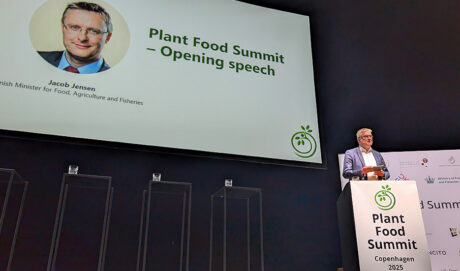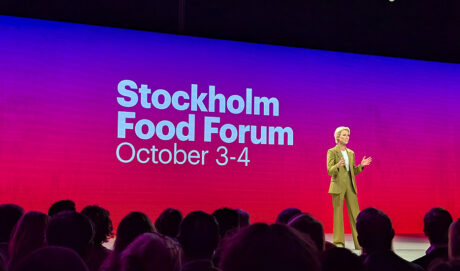Erosion can be defined as the wearing away of the earth's surface by physical forces that may be natural (rain, running water, wind, ice, climate change, gravity, etc.) or anthropogenic in origin. These factors remove natural material from one location and relocate it to another.
Man-made soil erosion is nothing new; it occurred as early as the Neolithic period when civilizations began to alter their natural environment through agriculture.
Stay informed with our latest sustainable farming insights and exclusive content. Subscribe now.
CAUSES OF SOIL EROSION
Every five seconds we lose a football field of the most fertile topsoil to soil erosion. Numerous studies have shown that climate change significantly increases the risk of soil loss. In recent decades, extreme weather events such as thunderstorms, heavy rainfall, droughts, and heat waves have become more frequent. Combined with the growing world population and the ever-increasing demand for food production and land use changes (e.g. deforestation, intensification of agriculture, and increasing agricultural use in third world countries), the risk of severe soil erosion is greater than ever.
Every five seconds we lose a football field of the most fertile topsoil to soil erosion.
Erosion and soil production rates vary by more than four orders of magnitude worldwide depending on local area characteristics, particularly climate, geology, soils, and topography. It is estimated that the current global average soil erosion rate in conventional agriculture is about 1 mm/year which is on average 1-2 orders of magnitude greater than the rates of natural soil formation, erosion under native vegetation, and long-term geological erosion.
IMPACTS OF EROSION ON LIFE ON EARTH
The consequences of soil erosion extend beyond the loss of fertile farmland. In addition to reducing the amount of nutrients, the original composition of the soil is disturbed. The availability of water in the soil is reduced which means an increased risk of flooding and landslides in the region. This negatively affects biodiversity, biogeochemical cycles, crop yields, and consequently human nutrition and the economy.
Soil that erodes from the surface due to various factors, along with all pesticides and fertilizers, is washed away by water, polluting and damaging aquatic ecosystems on which the lives of local people also depend. Soil erosion can lead to desertification, creating deserts with arid conditions.
THE WAY TO RIGHT SOLUTIONS
In the last 150 years, we have lost half of the topsoil on our planet. How the statistics continue depends on us, and we must act quickly. In agriculture, we should adopt sustainable practices that reduce erosion and pollution over the long term. We need to find ways to increase crop yields using sustainable approaches to prevent further deforestation. Some of the most erodible soils should be taken out of crop production and planted with permanent vegetation that prevents erosion.
In the last 150 years, we have lost half of the topsoil on our planet.
BEYOND BORDERS OF AGRICULTURE
Finally, efforts to reduce and prevent soil erosion must extend beyond agriculture to the conservation of the entire natural environment. This is critical to ensuring sustainable ecosystem services that are also essential to the quality of human life on the planet.
WE KEEP THE SOIL HEALTHY
At LoginEKO, we understand the importance of healthy, fertile soil. That is why we strive to use production methods that best support the plant, its consumers, and the soil. Each year we plant cover crops to prevent the loss of organic matter and erosion that would occur if the soil was left uncovered during the time when no other crops are sown.
We support the use and development of sustainable agricultural approaches that maintain and restore critical habitat, protect river basins, and improve soil and water health.
Alenka Skvarč
More on this topic:
“The author’s views are entirely his or her own and may not necessarily reflect the views of Login5 Foundation.”
